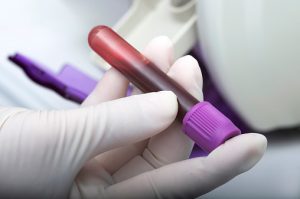
Dr. Martin Angst, study author, said, “Patients and physicians alike want to know how long pain and dysfunction will last after surgery, but the rate at which patients recover is highly variable and differs for every patient. Our research indicates that we can capture important aspects of each individual patient’s biology that accurately predict how they will handle and recover from surgery. This may ultimately enable us to provide personalized, cost-conscious approaches to aid recovery and have a major impact on perioperative medicine.”
Researchers examined whether inducing immune responses in pre-surgical blood samples correlated with recovery among 25 patients who underwent hip surgery. Pre-surgical immune state was found by inducing a signaling response similar to the immune system’s response during surgery. Immune responses were measured against outcomes contributing to recovery, including pain, hip dysfunction and disability.
Recovery time ranged from days to weeks and researchers found a strong correlation between pre-surgical immune state and the speed of recovery time. Although a correlation between pre-surgical immune state and recovery and pain and dysfunction was found, there was no correlation between prior immune state and fatigue and resulting disability.
Dr. Angst added, “Our ultimate goal is to develop a blood test that can assess key attributes of a patient’s immune system, be applied to daily clinical practice, be performed in regular clinical laboratories and be predictive of an individual patient’s recovery profile. Predictions could be used to counsel patients and manage their expectations or to stratify them prior to surgery by assigning patients at risk of slow recovery into prehabilitation programs or postponing surgery.”
Accompanying editorial author, Dr. James C. Eisenach, wrote, “The current study represents an important step forward in the prediction and potential manipulation of speed of recovery. This work will likely spur research to determine whether a high-risk group can be easily identified for interventional trials and whether preoperative or postoperative immune modulation, such as with glucocorticoids (steroids), might speed recovery.”
The findings were published in Anesthesiology.
Sources:
http://www.eurekalert.org/pub_releases/2015-11/asoa-btm111915.php